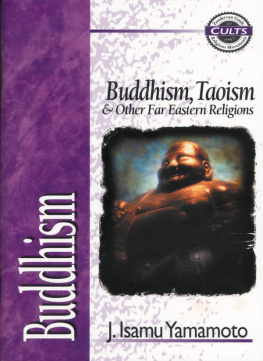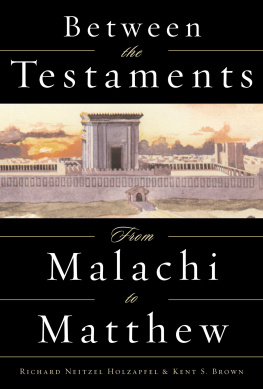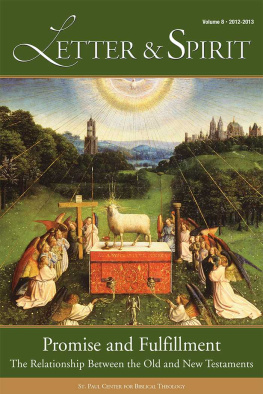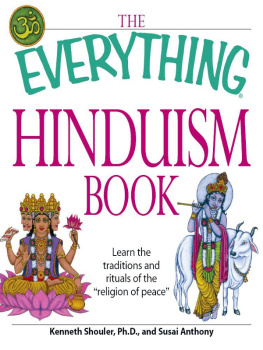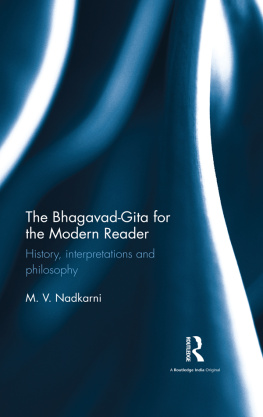about the author
After a lengthy career as a minister of the United Church of Canada, east, west, north, and central, Brian Arthur Brown is currently scholar-in-residence at the historic and progressive First Baptist Church of Niagara Falls, New York, and minister emeritus for St. JohnsStevensville United Church in Fort Erie, Ontario. He is the author of nineteen previous books on the quest for peace and harmony between aboriginal natives and other Canadians; French and English in Canada; Canadians and Americans in war and peace; and, since 2001, Jews, Christians, and Muslims worldwide, culminating in Three Testaments: Torah, Gospel, and Quran, in use around the world and the predecessor to Four Testaments: Tao Te Ching, Analects, Dhammapada, Bhagavad Gita.
Brown holds a bachelors degree in classics from Dalhousie University in Halifax, a masters degree in theology from McGill University in Montreal, and a doctorate in organizational behavior from the University of California, and he has done post-doctoral studies in executive leadership at Harvard University. He is currently a member of the Oxford Round Table at Oxford University and in 2015 was elected as a fellow of the Royal Society for the Arts.
Married for well over fifty years, Brian and Jenny Brown live within earshot of the thunderous Niagara Falls and maintain connections with co-religionists worldwide.
about the contributors
David Bruce is a Roman Catholic writer and theologian, following a lengthy career in the ministry of the United Church of Canada. He is the sole author of the four-volume series Jesus 24/7 and was a major contributor to Three Testaments: Torah, Gospel, and Quran. Dr. Bruce is currently noted as the author of The Resurrection of History, a popularization of his 2014 PhD thesis from St. Michaels University College at the University of Toronto.
Francis X. Clooney, a Jesuit, is professor of comparative theology at the Harvard Divinity School, director of the Center for the Study of World Religions at Harvard University, and professorial research fellow at the Australian Catholic University. With a doctorate in South Asian languages and civilizations (University of Chicago, 1984), he taught at Boston College for twenty-one years before coming to Harvard. His primary area of scholarship is theological writings in the Sanskrit and Tamil traditions of Hindu India. Clooney is regarded by many as the minence grise in the developing fields of comparative theology, religious studies, and interfaith conversations.
K. E. Eduljee (Ed) is the founder of the Heritage Institute in British Columbia, Canada, and the author of several monographs, as well as the Zoroastrian Heritage website and blog. He is currently writing the Immortal Cypress, an epic in verse. An articulate Parsee and meticulous scholar of both history and religion, in his proficient use of social media he communicates with both the general public and the Zoroastrian community.
Richard Freund is the director of the Maurice Greenberg Center for Judaic Studies, University of Hartford. He has directed six archaeological projects in Israel and three in Europe, as well as archaeological oversight in Burgos and Cadiz, Spain, and a research project at the extermination camp at Sobibor, Poland. Freund is the author of six books on archaeology and over one hundred scholarly articles, and he has appeared in fifteen television documentaries, including as a featured guest in a 2004 Nova special and Finding Atlantis on the National Geographic Channel in 2011. His books from Rowman & Littlefield, Digging Through the Bible and Digging Through History, are widely available.
Mohandas GandhiNo introduction is necessary and none would be adequate, except to emphasize that the founder of modern India and leader of nonviolent political change in the twentieth century, while more an activist than a scholar in areas like law and politics, became a scholar of Buddhism, Christianity, and Hinduism in reference to scriptural texts and political and social application.
Karl Friedrich Geldner (18521929) was professor of Sanskrit and comparative philology in the University of Marburg and the pioneering author of Vedische Studien, his still definitive work on Vedic studies. Geldner is regarded as having proven that the Avesta format is historically related to the Vedic meters of the gayatri family in the Rig Veda, and that the meters of the Gathas were recited, unlike the meters of the Younger Avesta, which are mostly sung. This situates the early Zoroastrian Scriptures as freestanding Vedic contributions to religious developments across the East, particularly Hinduism and Buddhism, independent of the Vedic connections to the Western corpus (as discussed in Book VI of this compendium).
Cyril Glass is the author and editor of The New Islamic Encyclopedia from Rowman & Littlefield, generously endorsed by Huston Smith, as well as other works and articles, including the recent The Second Coming of the Judeo-Zoroastrian Jesus of the Dead Sea Scrolls. An Islamic immigrant to the United States, originally from Russia via various Middle Eastern countries, Glass lives in New York City, where he works as a cultural guide to the city and as an educational consultant.
Victor H. Mair is an American sinologist and professor of Chinese at the University of Pennsylvania. In addition to countless articles and twenty books of his own, Mair has edited the standard Columbia History of Chinese Literature and Columbia Anthology of Traditional Chinese Literature. Mair is a longtime advocate for writing Mandarin Chinese in an alphabetic script (viz., pinyin), which he considers advantageous for Chinese education, computerization, and lexicography. He is widely regarded as the leader in the growing appreciation of exterior influences in the development of civilization in ancient China.
Jacqueline Mates-Muchin is senior rabbi at Temple Sinai in Oakland, California. Following ten years of rabbinical service, she recently spent a six-month sabbatical in Israel. Her earlier scholarly focus produced The Analects of Confucius and Its Parallel in Early Rabbinic Thought as a reflection of her Chinese and Jewish traditions as the first Chinese American rabbi.
Sarvepalli Radhakrishnan, an Indian philosopher and statesman, was the first vice president of India and the second president of India (19621967). One of Indias influential twentieth-century scholars of comparative religion and philosophy, he was Spalding Professor of Eastern Religion and Ethics at Oxford University (19361952). His philosophy, grounded in Advaita Vedanta, reinterpreting this tradition for a contemporary understanding, earned him an enduring reputation as a bridge builder between India and the West.
Arvind Sharma has been a member of the faculty of religious studies at McGill University since 1987, where he lectures on Hinduism and comparative religion at the world launch site of comparative religion under Willfred Cantwell Smith (before the latters relocation to Harvard, where he founded the Center for the Study of World Religions). Sharma himself has held fellowships at the Center for the Study of World Religions as well as at the Center for the Study of Values in Public Life, the Center for Business and Government, John F. Kennedy School of Government at Harvard University, and the Brookings Institute. He also received a Maxwell Fellowship and was elected fellow of the Royal Asiatic Society, London.
abridgment and dramatic presentations
S OME READERS AND CERTAIN ACADEMIC PROGRAMS MAY HAVE ACCESSED THIS COMPENDIUM anticipating the four testaments without expecting the opening section on the Vedic context or the closing material relating to the West. This volume has been designed so such readers may begin with Book II and conclude with Book V. The Zoroastrian material in the opening and the closing may work for others as what we refer to as the thumb that facilitates the action of those four fingers, and it may be read by class members or study group participants as an introduction to the four world religions of the East in Books IIV, followed by a conclusion in the Western context.


